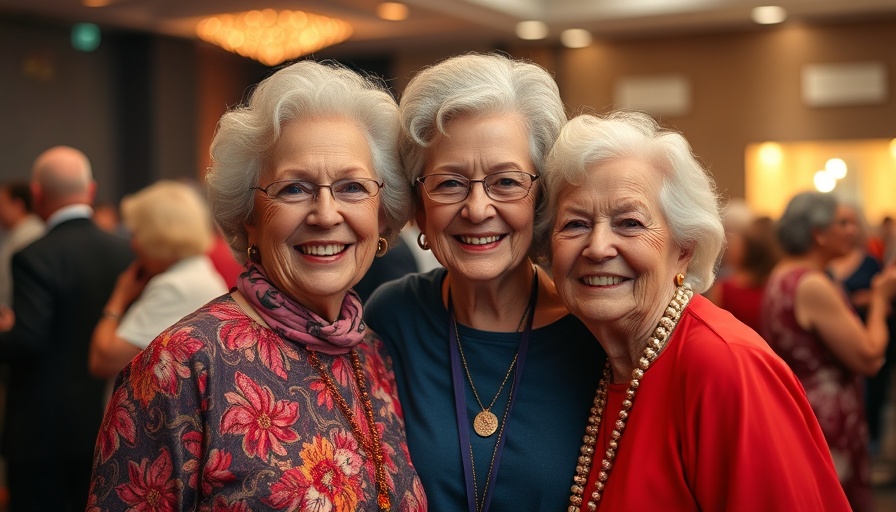
Remembering Susanne Jalnos: The Last Voice of Her Generation
San Antonio has lost a prominent figure in its community with the passing of Susanne Jalnos, the last living Holocaust concentration camp survivor in the city. At 98 years old, she leaves behind not just a rich personal history but also a legacy of education and resilience that has touched thousands. Her journey from the atrocities of Auschwitz to becoming a pillar of her community echoes the sheer determination of the human spirit.
Historical Context: A Survivor's Journey
Susanne Jalnos's harrowing story began in 1944, during World War II, when she and her younger sister were forcibly taken from their hometown of Rojka, Hungary, and transported to Auschwitz. Here, they lost their parents, but they emerged from the depths of despair, embodying hope and strength. This historical backdrop of the Holocaust not only illustrates the dangers of unchecked hatred but also highlights the importance of memory and education in preventing future atrocities.
Social Connection: The Collective Grief of a Community
As her family and the wider San Antonio Jewish community mourn her loss, Jalnos's passing resonates deeply, serving as a painful reminder of the dwindling number of Holocaust survivors. Her legacy of storytelling was instrumental in education against prejudice, and as antisemitism surges in various parts of the world, her life’s work is more important than ever. There is a collective understanding that the fight against hate continues, fueled by the stories of those who have lived through it.
Continuing Her Legacy: Inspiring Future Generations
One of Susanne’s most significant contributions was her dedication to educating the youth. According to her son, Robi Jalnos, she spoke to thousands, ensuring that her experiences were not forgotten. “She expressed the importance of remembrance in every presentation,” he noted, emphasizing that her goal was to prevent history from repeating itself. As her family vows to carry on her efforts, they highlight how one voice can make an enormous impact on many lives.
Community Impact: A Matriarch’s Role
Susanne was described by her son as the glue holding various Jewish organizations in San Antonio together. Her involvement in numerous initiatives, particularly the Holocaust Memorial Museum, underlines her commitment not just to remembrance but to a thriving community. The outpouring of love and gratitude from those she impacted suggests a deep-rooted appreciation for her persistence and connection to others. Each letter and message serves as a testament to her far-reaching influence.
Emotional Reflection: The Human Connection
The grief experienced by her family is palpable and reflects the profound emotional implications of losing not just a matriarch but a living memory. Her story touched countless lives, often prompting tears and deep discussions among students and community members alike. As Robi notes, “To see fifth graders crying over the ordeal shows how fortunate we are not to experience something like that today.” Such reflections echo a universal truth about empathy and awareness of history’s impact on the present.
Facing Contemporary Challenges: A Call to Action
In light of Susanne Jalnos's legacy, her family emphasizes the urgency of combating rising antisemitism and intolerance. As concerns about public safety grow in various communities, it becomes crucial for individuals to engage actively in dialogue and education about past horrors to avoid future transgressions. “We cannot forget where we came from; our voices must echo louder in the face of hatred,” remarked Robi, urging others to share their stories and uphold the principles of love and acceptance.
Though her physical presence is no longer felt, Susanne Jalnos's spirit will continue through the stories she shared and the people she inspired. This extra layer of commitment to her memory presents everyone with the opportunity to advocate for peace, understanding, and community solidarity.
 Add Element
Add Element  Add Row
Add Row 



Write A Comment